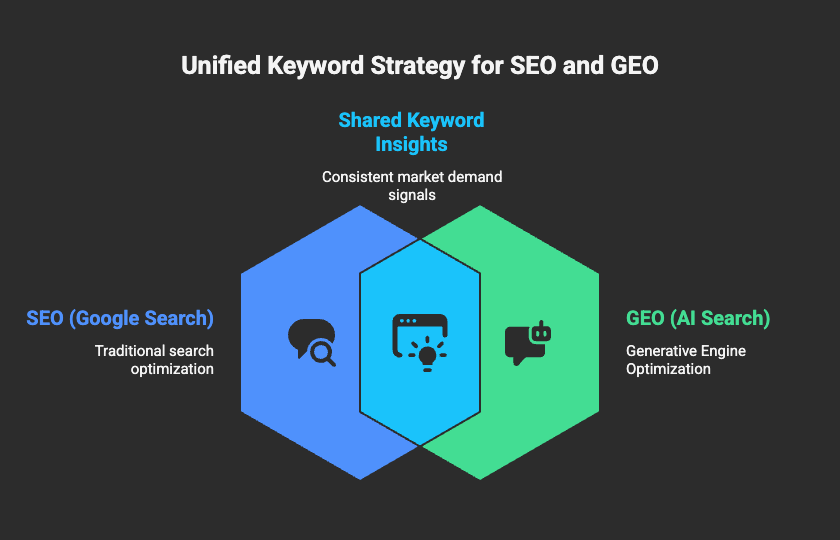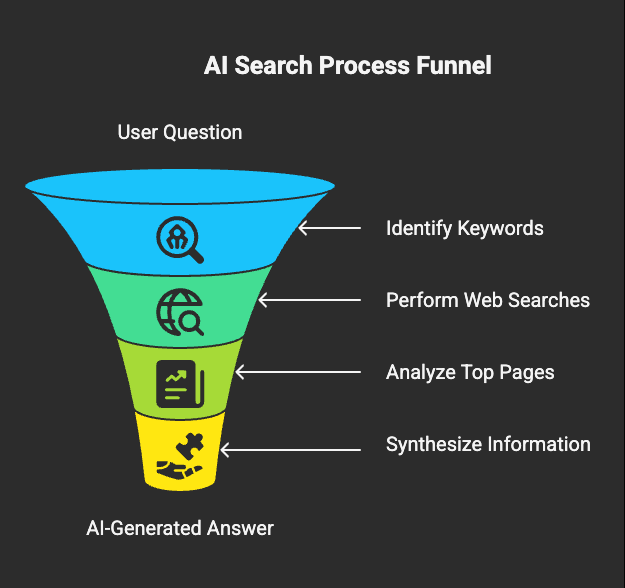With the rise of AI Overviews and chatbots like ChatGPT, the question on every digital marketer’s mind is: “How does this change our keyword strategy?” Many assume that conversational AI requires a completely new approach to keyword research.
But what if the most effective strategy was also the simplest?

Our position is straightforward: you should track identical keyword sets for both AI Search (GEO) and traditional Google Search (SEO). This approach gives you the most comprehensive insights as you navigate the changing world of search. Let’s dive into why.
It seems counterintuitive, right? AI is conversational. But the key is understanding the mechanics. When an AI chatbot gets a question, it performs web searches using keywords to find information before it gives you an answer.
This process includes:
This means the same keywords that drive your organic search visibility are directly influencing AI-generated answers. While a user might ask a question differently (“What’s the best project management tool for remote teams?”) than they type a query (“remote project management software”), the underlying search intent is the same.

To measure performance, you have to connect it to market demand. For SEO, Google Search volume has always been that key indicator.
While AI chatbots don’t provide public search volume data, Google’s data is still the best proxy for what the market is interested in. The people asking AI about a topic are a subset of the larger audience searching for it on Google. By tracking a unified keyword list, you can base your strategy on proven market interest.
The shift to AI is gradual. Most users are still primarily using Google Search, and that habit will be the dominant pattern for the foreseeable future.
This means SEO teams need a two-part strategy:
We recommend tracking identical keyword sets for Google and AI Search on a unified dashboard.
This gives you significant strategic benefits:
To make this actionable, we’ve integrated this unified approach directly into our Rank Tracker. Here’s a look at how you can see your Google Search (SEO) and AI Search (GEO) performance side-by-side:
In this view, you can directly compare your traditional rank in Google Search with your brand’s citation rank in AI Search (like ChatGPT), all in one place. You can also see how your presence in Google’s AI Overviews correlates with your performance, giving you a complete picture of your visibility across the entire search landscape.
As search evolves, a unified keyword strategy is essential. By tracking the same keywords for both traditional SEO and emerging GEO, your team can win today while being fully prepared for tomorrow.